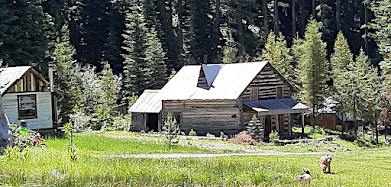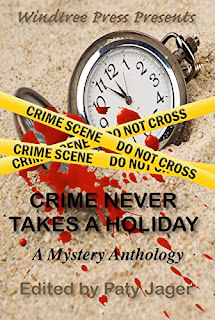The secret of happiness is to live moment by moment and to thank God for all that He, in His goodness, sends to us day after day. ~ St. Gianna
I’ve been on this earth for quite a while. I’ve lived through a lot of ups and downs and have grown to be thankful for many things.
My husband and I grew up in middle class families in Washington, we didn’t have a lot, but we had enough. Our two mothers grew up with even less, and from their childhood I’m sure they were starkly aware of what was enough to maintain a family since they both had lived through the Great Depression.

My mother was one of eleven children and had to help the family. I know she had picked cotton and had helped raise a brother. She’d say, God will provide, and in retrospect, I believe she probably had seen it in action a few times.
My mother-in-law was a great example of showing gratitude for what she had. When she expressed thankfulness, you could see genuineness in her face and tone of voice. She had seven siblings and four of them died young. Her own mother became a widow at fifty and had to take over the farm and family.
My husband and I were both raised in church, values that were inbred in our parents and they did their best to point us in the right direction. They knew that the ultimate thing to be thankful for was the sacrifice of Christ. No matter how hard I try, I can never be thankful enough for what He has done.
At our childhood homes, we had enough to eat, but not many leftovers. Our mothers split one chicken between a whole family of five or six people, so we rarely got the drumstick. Of course, there were side dishes included. Neither of us regularly ate candy, chips or drank soda. They were for special treats or occasions only (or if we got ahold of some change). People of the United States were generally thinner back in the sixties and didn’t frequent fast food establishments like many do now.
In my twenties I was a stay-at-home mom with two babies. I remember being on a budget and having fifty-five dollars in savings. I kept it there for months. To do this I washed the kids’ diapers instead of buying disposables. Chose fun but inexpensive presents for birthdays and Christmas. I made a menu and bought groceries for two weeks at a time, because I didn’t have a standalone freezer or the money to fill it. That’s how strict I had to be, but I’m extremely grateful I was able to be home with the kids.
My father told us that the only way he really prospered was when he bought real estate. I had not forgotten that bit of advice and in our forties my husband and I bought property; and it indeed has helped us prosper over the years.

Today, I get the drumstick and sometimes the thigh piece, too. When I cook, there are lots of days I have leftovers. I can find just about anything I want at the store and can even order it online and pick it up. Correction, the store clerk loads the groceries in my car. After my chicken dinner, I have a Lindor chocolate and a couple of miniature candy bars. I have a Lindor every day as a matter of fact. I am royalty compared to what I knew when I was a child. I am thankful for those early years because I (we) learned that our fathers always provided and how our mothers used the money to successfully feed and care for us. Most important, I’m thankful we learned what enough is.
Now, we have savings that we couldn’t imagine having earlier in life. When you’ve lived a long time, you have time to build up a little money and pay off your house (if you are consistent with payments). We presently have a full standalone freezer, so we eventually got off that budget – but it took years.
I am thankful for those early years because I learned it’s rewarding to learn to be able to make ends meet, especially as a young person. I’m thankful that if I lose it all tomorrow, I can draw from my early life to help make ends meet again.
Being thankful is crucial to our happiness, no matter the measure.








 Of course, living in an era that has given women more rights, I cannot fully understand the challenges Edna faced. If my husband dies, our house will not go to the closest living male relative, but to me. Still, I see some allure in the era that takes place around 1870, just after the Civil War. Enough to inspire me to write historical fiction anyway.
Of course, living in an era that has given women more rights, I cannot fully understand the challenges Edna faced. If my husband dies, our house will not go to the closest living male relative, but to me. Still, I see some allure in the era that takes place around 1870, just after the Civil War. Enough to inspire me to write historical fiction anyway.

